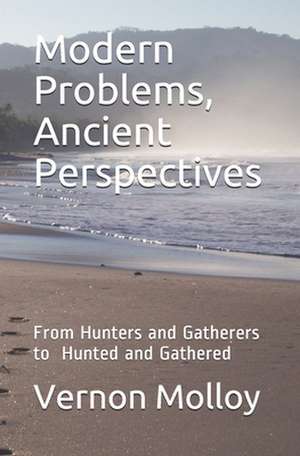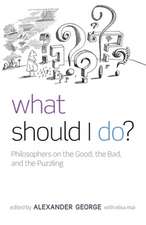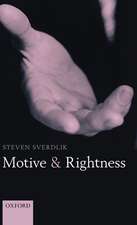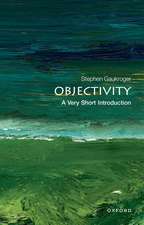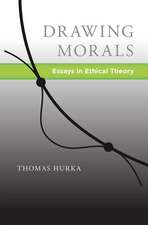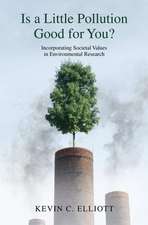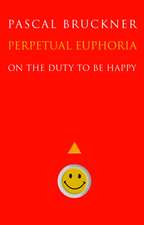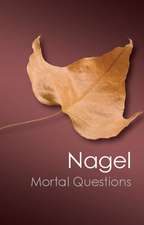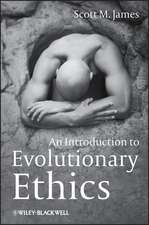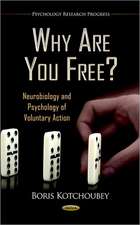Modern Problems, Ancient Perspectives
en Limba Engleză Paperback
Hardly anything was as exciting as being alive and wondering what it all meant.
In those 'good old days', information and socializing opportunities were hard to come by. The result was that many human beings remained curious and questioning. Cultural accomplishments - languages, oral traditions - had accumulated sufficiently that big-picture issues could be talked about.
They had not, however, mounted so high that nothing remained to discuss.
We know this because these small populations generated the cosmologies and myths now regarded as common-sense and realism.
In those days - celebrated in Western nations as Hellenism, the pre-Socratic era, Plato and Aristotle - people had the world for their oyster. Would-be philosophers rambled around muttering to themselves and buttonholing anyone who would listen. These conversations spawned the sciences and the arts. They planted the seeds that would grow into corporations, nations and the modern world.
Ironically, these successes diminished the sense of wonder that made them possible. After deputizing scientists and artists to do the heavy-lifting, philosophy shriveled into an arcane activity practiced by people in broom closets and remote corners of universities.
To be sure, philosophers continued to sharpen logical tools, muttering that such skills will be welcome soon enough. They pondered moral and epistemological questions no one else cared about. Not noticing their emeritus status, they soldiered on, hoping to corral at least one eminent truth and repair their reputation.
This has not and cannot happen. Philosophical standpoints define what count as truth. Such benchmarks cannot be tested to determine whether they are correctly situated. The idea that they could 'progress' is equally oxymoronic.
A second difficulty is that every 'candidate insight' triggers an internecine feeding frenzy. Philosophers instinctively attempt to overturn - or at least improve - every point of view they come across. Since they lack anything like Large Hadron Colliders to investigate perplexing questions, mutual sniping is the only tool in their kit.
The result is that all the important questions remain on the table.
This is not failure but an enormous accomplishment. In addition, remarkable insights have been achieved along the way. John Rawls' theory of justice and Immanuel Kant's universalizability test come to mind. Ludwig Wittgenstein discarded the picture theory of language that earned him a doctorate at Cambridge University to challenge commonsense notions in ways philosophers still mine for insights.
No epiphanies however, only increasingly subtle questions.
What's so valuable about not 'being able' to come to conclusions? The answer is that politicians, corporations, nations... have no difficulty coming to and acting upon conclusions. They harvest resources recklessly. They ride rough-shod across everything.
I think this means wars, global warming, global poverty... reflect philosophers' historical failures to challenge, indict, publicize, excoriate... the conceits of their half-witted, doubt-free progeny.
This is my hope for Modern Problems, Ancient Perspectives.... The political, economic and psychological mischiefs traceable to the primitive cosmologies embedded in the sciences, commonsense and religions dramatize the consequences of failed skepticism.
Skepticism is what philosophers are good at. They have kept one another scoreless for thousands of years
This skepticism must be expanded. A new generation of Socratic philosophers is needed to restore mankind's childlike curiosity and youthful optimism - and perhaps save the world in the bargain
Preț: 91.95 lei
Nou
17.60€ • 19.11$ • 14.78£
Disponibil
Livrare economică 01-15 aprilie
Specificații
ISBN-10: 0994855710
Pagini: 458
Dimensiuni: 133 x 203 x 24 mm
Greutate: 0.33 kg
Editura: Vernon Molloy
Notă biografică
Born in 1942, I was the first of seven children born to an Irish father and French mother. We lived on a 100 acre farm near Ivanhoe, Ontario.
In my 'good old days', we earned our living with farming, subsistence activities and off-farm work. Pigs and chickens were always underfoot. Cows kept our fields trimmed until excused from such duties and the indignity of old age.
Children kept turning up.The family next door had nine girls and one boy.
Until puberty fostered interest in other delicacies, we fished, swam and picked strawberries and raspberries along fence rows. We cut firewood, milked cows and cleaned barns.
I did not start school until I was seven. With my mother's help and lack of entertainment options, I could read by this time.This accomplishment was occasionally brandished by our beleaguered teacher hoping to motivate students who already had important things on their minds.
The result was that I spent lunch-hours further sharpening reading skills and keeping out of harm's way.
I read hundreds of science fiction novels, Tarzan novels and every Zane Grey book in existence. I read Henry Thoreau, Ralph Waldo Emerson, Immanuel Kant and a Protestant Bible kept in a secret place in our Catholic barn. (The only thing worse would have been a copy of the Koran, which I did not know existed).
Much later, I tackled A. N. Whitehead's 'Process and Reality', and confess that it remains a 'work in process. Mr. Whitehead provides a wonderfully illuminating way of thinking about what is going on. My project involves seeing what light this formidable vantage point sheds upon economic and political problems.
Along the way, I develop notions about subjectivity and consciousness that I do not think Mr. Whitehead had in mind.
